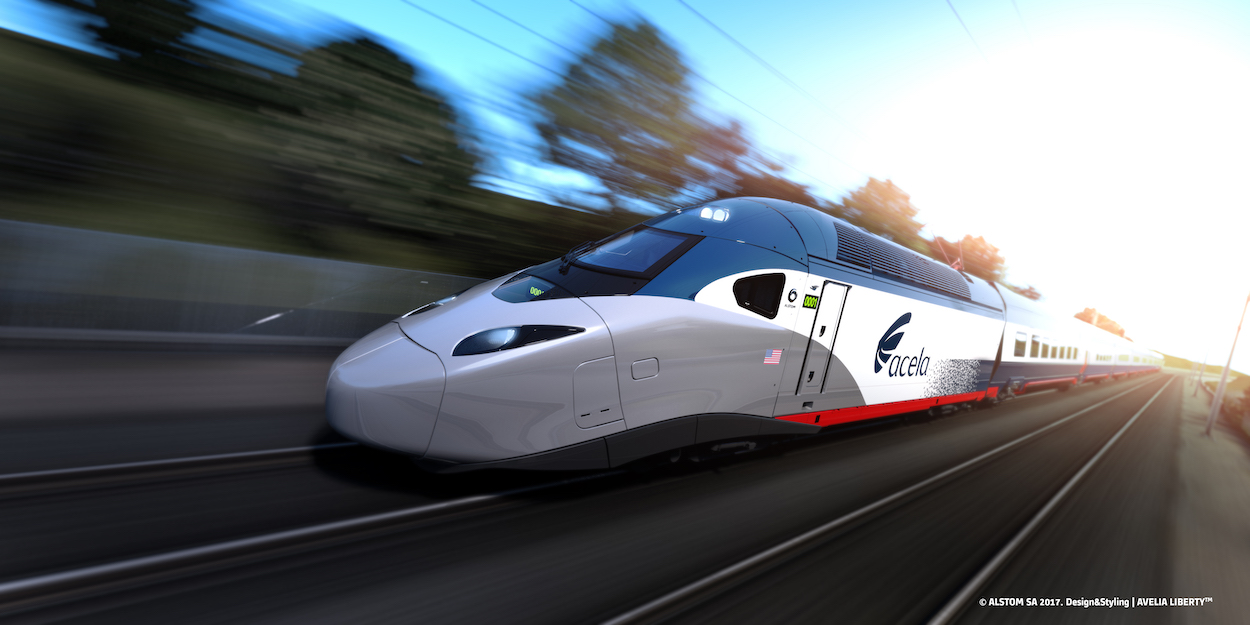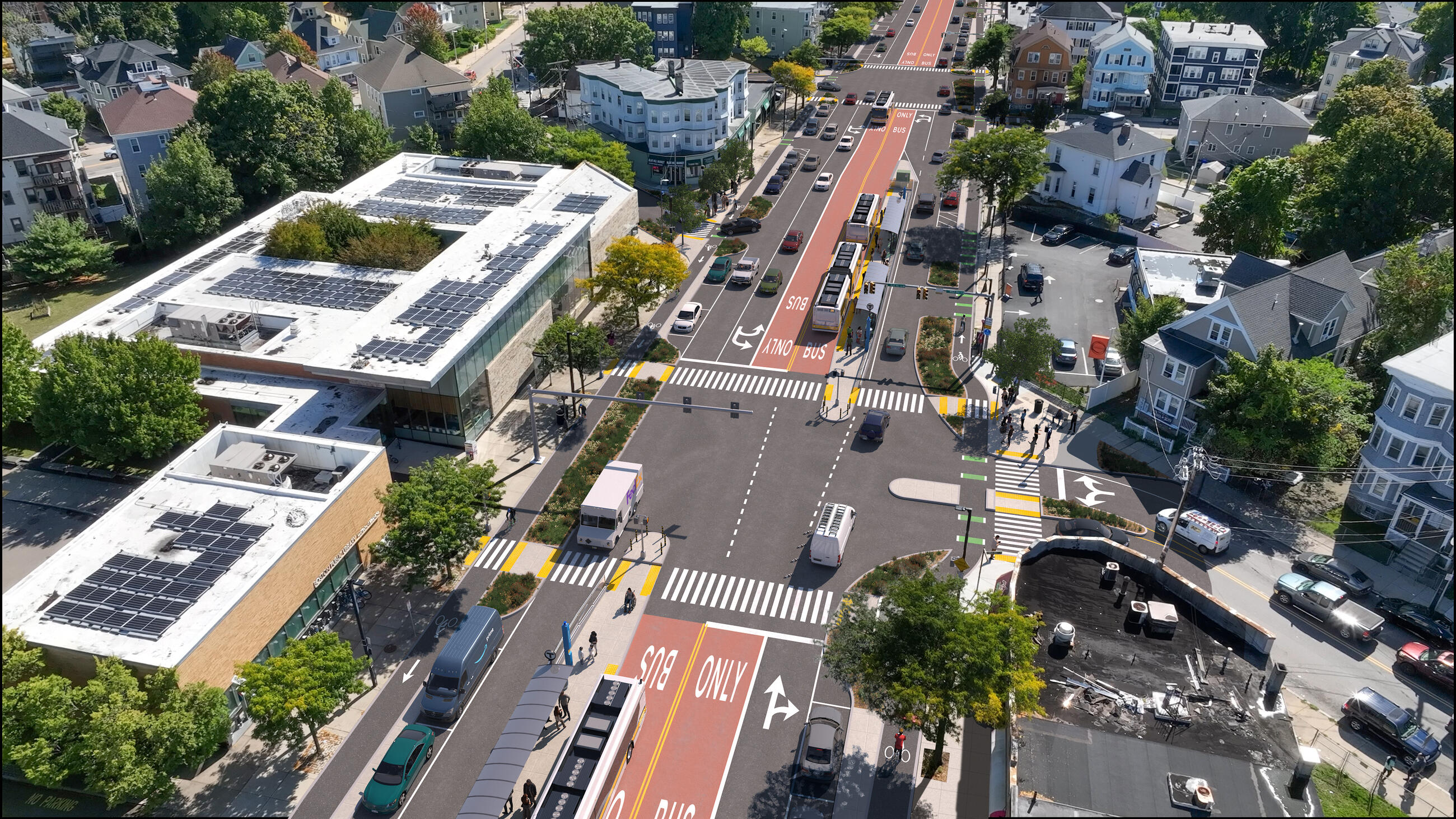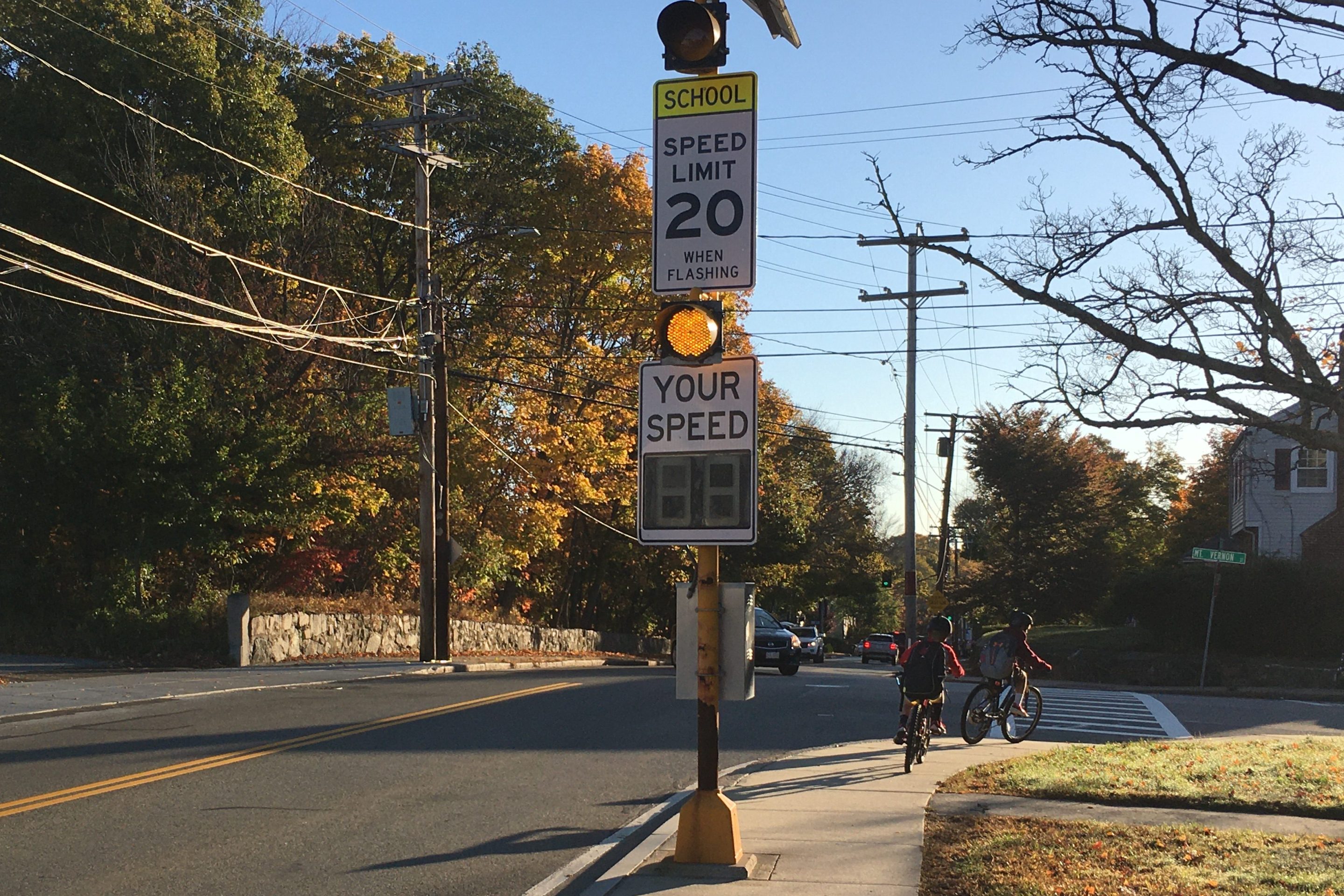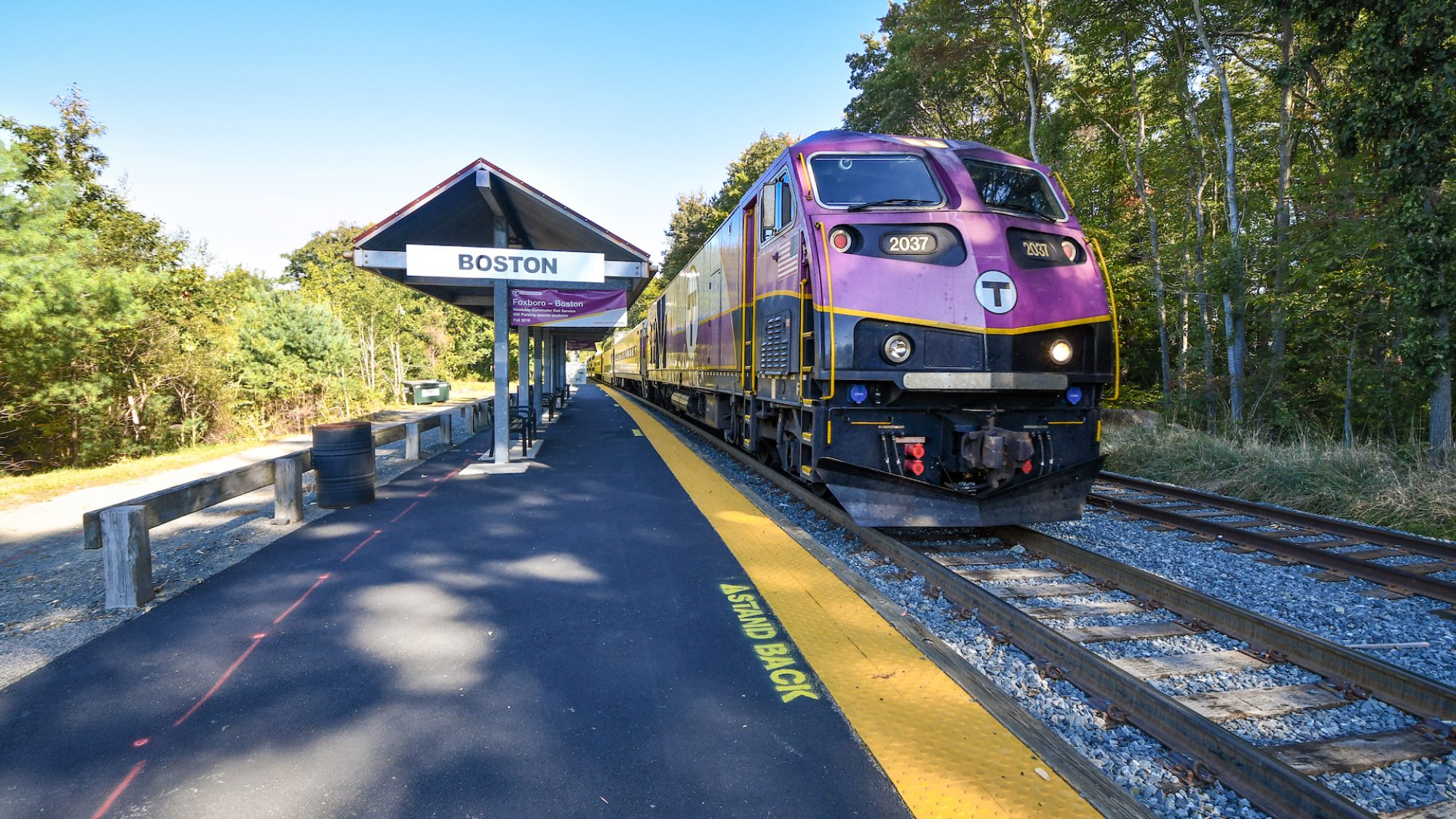The Northeast Corridor Commission, a federally-convened partnership between the states and Amtrak, has released a new 15-year plan to upgrade tracks and stations for faster trips between Boston and Washington, DC.
If all of the recommended projects from the new "Connect NEC 2035" plan were funded and built, the Commission estimates that Amtrak's travel times between Boston and New York City could be cut by 28 minutes, and that the MBTA would be able to operate considerably more trains at higher speeds between Rhode Island and South Station.
In Massachusetts, where the MBTA owns the Northeast Corridor's railroad tracks, the Commission's recommendations broadly align with the MBTA's own "Rail Vision" plan to electrify its regional rail services.
Current MBTA commuter rail trains currently burn considerable volumes of diesel fuel along the Northeast Corridor, even while they run underneath the overhead wires used by electric Amtrak trains.
Fortunately, the T is already pursuing plans to convert its Providence Line trains to run on electric power by 2025, which would allow the agency to run faster, more frequent service. Several of those projects are included in the Northeast Corridor Commission's new plan, including:
- The Tower One Interlocking Project, which will upgrade tracks and signals at the entrance to South Station, and is scheduled to start construction next year;
- New high-level platforms at South Attleboro station, and electrification of the MBTA's station sidings at Attleboro to allow for electric regional rail services;
- A new third track between Readville and Canton Junction to add additional capacity on the busiest segment of the Northeast Corridor. An MBTA spokesperson confirmed that this project would be a joint venture between the T and Amtrak, and a study for the project was just initiated last month.
A handful of other projects in Rhode Island, including a new station in Pawtucket and track upgrades near Providence station, would also support faster, more frequent service on the T's Providence Line.
"Special projects like the Boston South Station Tower 1 Interlocking, the Attleboro Area On-Time Performance/Capacity Improvement, curve speed improvements, and additional electrified track and conversion to electric trains will reduce existing skip-stop MBTA commuter rail travel times between Boston, MA and Providence, RI by 11 minutes, and between Boston, MA and Wickford Junction, RI by 16 minutes," the plan promises.
The "Connect NEC 2035" plan generally focuses on incremental improvements along the existing Northeast Corridor, along with tackling the line's major backlog of maintenance needs.
That approach stands in stark contrast to advocates' proposed "North Atlantic Rail" plan, which proposes the construction of a brand-new high-speed rail routes to bypass the slowest portions of the Northeast Corridor and allow for 200 mph trains. Instead, the Commission opts for "planning studies to analyze new dedicated (Northeast Corridor) high-speed segments."
That lack of ambition disappoints Jarred Johnson, the executive director of TransitMatters and .
"With Northeast regional trains already full while the pandemic hasn’t even officially ended, I think we need much bolder thinking to enable the kind of capacity and radical mode shift we need to save our planet," said Johnson.
But simply meeting Amtrak's maintenance backlog along the Northeast Corridor will be no easy feat. The Commission's report estimates that the projects it's recommending will cost $117 billion over the next 15 years. Of that total, states and the federal government have so far only committed $17 billion, leaving a $100 billion gap.
Almost half of those costs – about $55 billion – are needed for projects in the New York City area, where Amtrak urgently needs to replace a century-old tunnel under the Hudson River.






